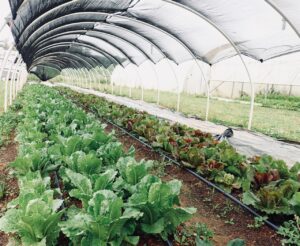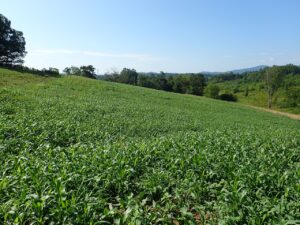Small Farms
go.ncsu.edu/readext?669055
en Español / em Português
El inglés es el idioma de control de esta página. En la medida en que haya algún conflicto entre la traducción al inglés y la traducción, el inglés prevalece.
Al hacer clic en el enlace de traducción se activa un servicio de traducción gratuito para convertir la página al español. Al igual que con cualquier traducción por Internet, la conversión no es sensible al contexto y puede que no traduzca el texto en su significado original. NC State Extension no garantiza la exactitud del texto traducido. Por favor, tenga en cuenta que algunas aplicaciones y/o servicios pueden no funcionar como se espera cuando se traducen.
Português
Inglês é o idioma de controle desta página. Na medida que haja algum conflito entre o texto original em Inglês e a tradução, o Inglês prevalece.
Ao clicar no link de tradução, um serviço gratuito de tradução será ativado para converter a página para o Português. Como em qualquer tradução pela internet, a conversão não é sensivel ao contexto e pode não ocorrer a tradução para o significado orginal. O serviço de Extensão da Carolina do Norte (NC State Extension) não garante a exatidão do texto traduzido. Por favor, observe que algumas funções ou serviços podem não funcionar como esperado após a tradução.
English
English is the controlling language of this page. To the extent there is any conflict between the English text and the translation, English controls.
Clicking on the translation link activates a free translation service to convert the page to Spanish. As with any Internet translation, the conversion is not context-sensitive and may not translate the text to its original meaning. NC State Extension does not guarantee the accuracy of the translated text. Please note that some applications and/or services may not function as expected when translated.
Collapse ▲
RESOURCES for SMALL FARMS
Explore the following topics to be directed to specific resources:
Plasticulture Equipment for Rent
FARM DIVERSITY

Vegetables grown under a shade cover.
Buncombe County is home to a variety of farms, from tiny productive spaces to large acreage. Agricultural enterprises are equally varied, ranging from cattle farms and livestock operations to mixed vegetable farms, herb and flower farms, greenhouse facilities, and an endless blend of crop diversity. Farms are located in every community, from our beautiful rural areas to the vibrant city hub of Asheville where crops are grown in intensively managed plots within city limits. Every small farm is unique in topography, land resources, and the products they raise and sell.

A field of lush and healthy forages for livestock.
The Small Farms Program for Buncombe County offers technical support for learning specific aspects of crop production, assessing properties for agricultural potential, and starting a farm business.
Whether you are a seasoned producer or are just beginning your experience in the agricultural realm, Cooperative Extension can provide educational tools and experiences for you to start out on your path with successful footing.
GET INVOLVED
- Workshops and events are held throughout the year; the Events and News & Updates sections contain full details on upcoming events.
- Sign up for the Buncombe Small Farms Newsletter to receive monthly newsletters on agricultural topics.
- Follow N.C. Cooperative Extension – Buncombe County Center’s Facebook page to learn about agricultural topics as well as the other areas of expertise: livestock, youth development, family and consumer sciences, greenhouse and landscaping, and home horticulture.




